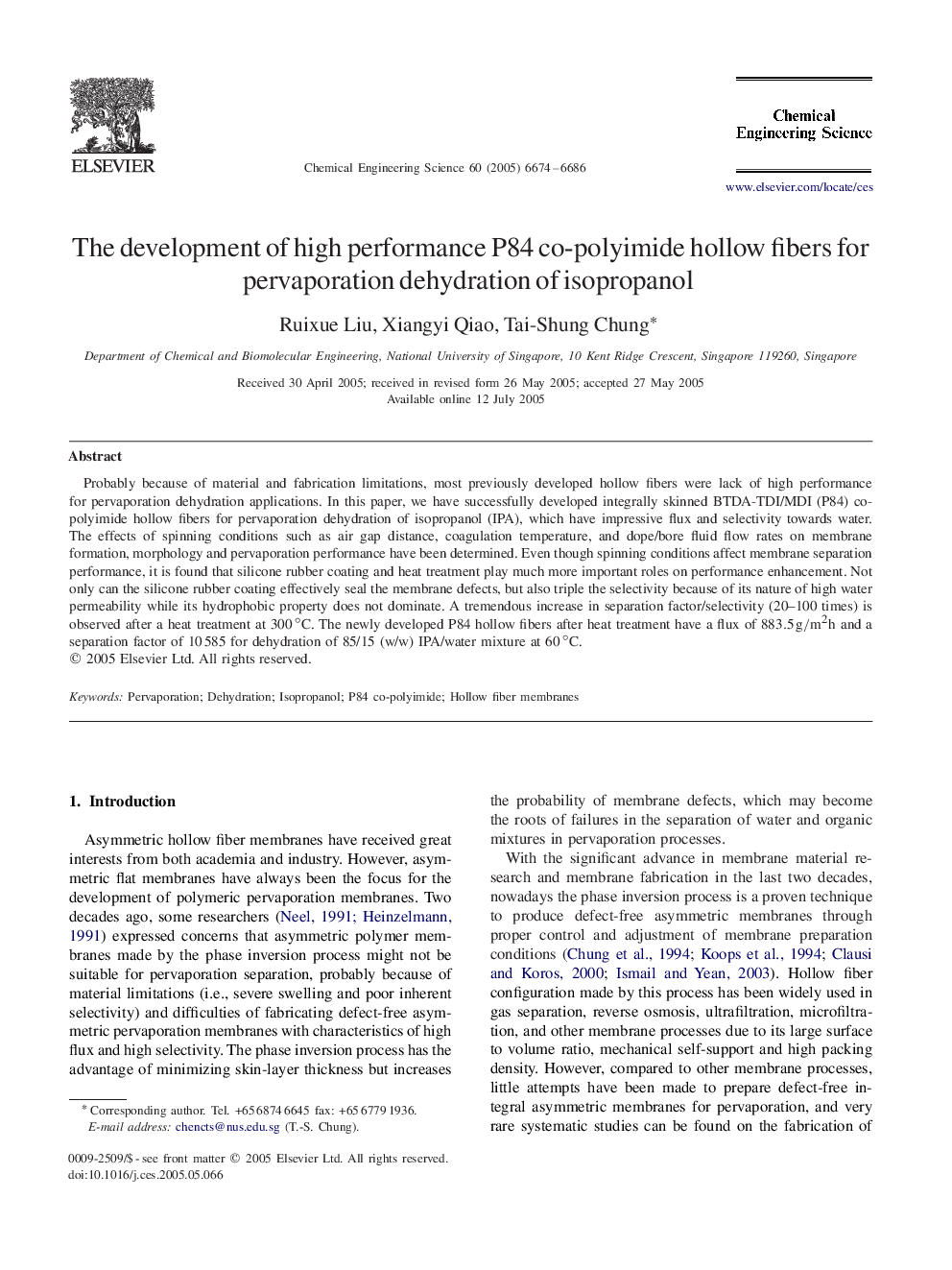| Article ID | Journal | Published Year | Pages | File Type |
|---|---|---|---|---|
| 161019 | Chemical Engineering Science | 2005 | 13 Pages |
Probably because of material and fabrication limitations, most previously developed hollow fibers were lack of high performance for pervaporation dehydration applications. In this paper, we have successfully developed integrally skinned BTDA-TDI/MDI (P84) co-polyimide hollow fibers for pervaporation dehydration of isopropanol (IPA), which have impressive flux and selectivity towards water. The effects of spinning conditions such as air gap distance, coagulation temperature, and dope/bore fluid flow rates on membrane formation, morphology and pervaporation performance have been determined. Even though spinning conditions affect membrane separation performance, it is found that silicone rubber coating and heat treatment play much more important roles on performance enhancement. Not only can the silicone rubber coating effectively seal the membrane defects, but also triple the selectivity because of its nature of high water permeability while its hydrophobic property does not dominate. A tremendous increase in separation factor/selectivity (20–100 times) is observed after a heat treatment at 300∘C. The newly developed P84 hollow fibers after heat treatment have a flux of 883.5g/m2h and a separation factor of 10 585 for dehydration of 85/15 (w/w) IPA/water mixture at 60∘C.
